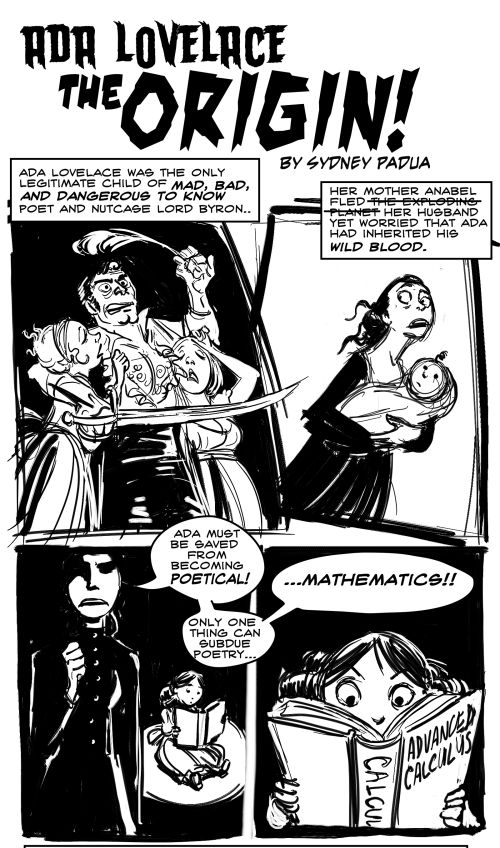''Augusta Ada King, Countess of Lovelace (10 December 1815 – 27 November 1852), born Augusta Ada Byron, was an English writer chiefly known for her work on Charles Babbage's early mechanical general-purpose computer, the analytical engine. Her notes on the engine include what is recognized as the first algorithm intended to be processed by a machine; as such she is often regarded as the world's first computer programmer.'' [source]
''We may say most aptly that the Analytical Engine weaves algebraic patterns just as the Jacquard loom weaves flowers and leaves.'' Lady Lovelace [source and source]
''Bernoulli number 'algorithm', Ada Lovelace, 1843''  More details: here.
More details: here.
[source]
''Her notes were labeled alphabetically from A to G. In note G, Ada describes an algorithm for the analytical engine to compute Bernoulli numbers. It is generally considered the first algorithm ever specifically tailored for implementation on a computer, and for this reason she is considered by many to be the first computer programmer.
The computer language Ada, created on behalf of the United States Department of Defense, was named after Lovelace.'' [source]
Comics on Lovelace and Babbage 
[source, and more comics are here]
There is even an Ada Lovelace day: see here,
and here.
The analytic engine used punched cards, an idea already adopted for the Jacquard loom.
Analytic engine 
Jacquard loom 
[source and source]
Video about the analytical engine: here.
Steampunk p.o.v.
''The Difference Engine is an alternate history novel by William Gibson and Bruce Sterling. It is a prime example of the steampunk sub-genre.
It posits a Victorian Britain in which great technological and social change has occurred after entrepreneurial inventor Charles Babbage succeeded in his ambition to build a mechanical computer (actually his analytical engine rather than the difference engine).'' [source]
Some more info about steampunk books and series adaptations: here.
Sunday, May 30, 2010
Augusta Ada Byron aka Lady Ada Lovelace
By
at
16:54
![]()
Section: computing 4 kids, EverGreen, popular science, Programming languages
Subscribe to:
Post Comments (Atom)
No comments:
Post a Comment